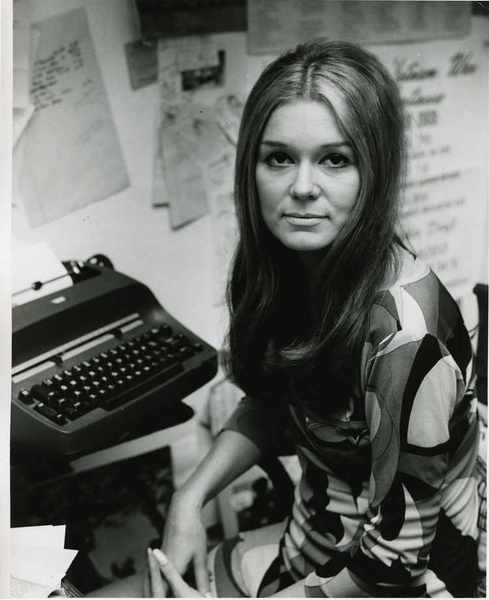Investigative Classics is a weekly feature on noteworthy past examples of the reporting craft.
"Without you, I'd be the publisher of a literary magazine," Hugh Hefner told a group of Playmates in 1970.
While few readers bought Playboy only for the articles, the magazine Hefner led from 1953 until his death last week might have earned more highbrow acclaim, though less attention, without its famous centerfolds.
But attention Playboy got -- and plenty of it -- thanks to Hefner's winning formula of male stimulation on levels low and high, including serious journalism and social commentary. And that made the magazine a focus of serious inquiry itself. The words were often so significant that they forced readers’ eyes to wander from the pictures – including J. Edgar Hoover’s.

Hefner helped establish Ray Bradbury’s popular appeal through serialization in 1954 of “Farhenheit 451,” and went on to publish fiction by Margaret Atwood, Haruki Murakami and David Foster Wallace (his first mainstream publication).
Hefner also published lengthy, provocative interviews with a wide range of seminal figures, including Steve Jobs, Fidel Castro, Martin Luther King Jr., and Miles Davis.
And, most pertinent to the mission of Investigative Classics, Hefner published impactful, in-depth journalism. Remarkable articles included:
-- “The Fight” (1974), Norman Mailer's celebrated account of Muhammad Ali’s fight against George Foreman in Zaire remembered as "The Rumble in the Jungle."
-- “Death of a Deceiver" (1995), in which Eric Konigsberg chronicled the life and death of Brandon Teena, the transgender man who was raped and murdered in Humboldt, Neb., and whose story was the basis for the film “Boys Don’t Cry.”

-- “The Man in the Bomb Suit” (2005), in which Mark Boal took readers inside the nerve-wracking world of bomb-squad technicians in Iraq. It inspired the film “The Hurt Locker.”
Conversely, Hefner’s controversial libertine masculinity also gave rise to notable journalism about his enterprise, including by Gloria Steinem, the feminist who rose to prominence by writing about her undercover work as a Playboy Bunny in 1963.
In 1981, after Janet Cooke's fraud at the Washington Post was exposed, Teresa Carpenter of the Village Voice was elevated to winner of the Pulitzer Prize in feature writing, for her exploration of the shotgun slaying of Dorothy Stratten, a 20-year-old Playmate groomed for fame by Hefner. Film producer Peter Bogdanovich, smitten with Bratten, blamed Hefner and the Playboy lifestyle for contributing to her death.
While Hefner helped push America toward more sexual freedom (and civil rights), he continued to suffer a backlash in later years against his image of the liberated man. In a further irony, the rise of the internet means that the only reason to buy Playboy nowadays is for the articles.



